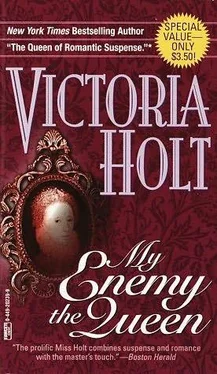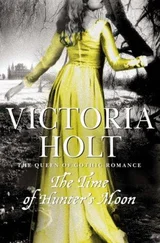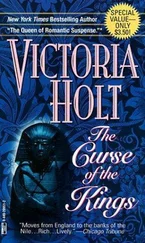Виктория Холт - My Enemy the Queen
Здесь есть возможность читать онлайн «Виктория Холт - My Enemy the Queen» весь текст электронной книги совершенно бесплатно (целиком полную версию без сокращений). В некоторых случаях можно слушать аудио, скачать через торрент в формате fb2 и присутствует краткое содержание. Жанр: Исторические любовные романы, на английском языке. Описание произведения, (предисловие) а так же отзывы посетителей доступны на портале библиотеки ЛибКат.
- Название:My Enemy the Queen
- Автор:
- Жанр:
- Год:неизвестен
- ISBN:нет данных
- Рейтинг книги:5 / 5. Голосов: 1
-
Избранное:Добавить в избранное
- Отзывы:
-
Ваша оценка:
- 100
- 1
- 2
- 3
- 4
- 5
My Enemy the Queen: краткое содержание, описание и аннотация
Предлагаем к чтению аннотацию, описание, краткое содержание или предисловие (зависит от того, что написал сам автор книги «My Enemy the Queen»). Если вы не нашли необходимую информацию о книге — напишите в комментариях, мы постараемся отыскать её.
It was always Lettice, the constant spoiler in the triangle of love surrounding Elizabeth...
My Enemy the Queen — читать онлайн бесплатно полную книгу (весь текст) целиком
Ниже представлен текст книги, разбитый по страницам. Система сохранения места последней прочитанной страницы, позволяет с удобством читать онлайн бесплатно книгу «My Enemy the Queen», без необходимости каждый раз заново искать на чём Вы остановились. Поставьте закладку, и сможете в любой момент перейти на страницу, на которой закончили чтение.
Интервал:
Закладка:
"You are wrong, Madam," retorted Essex. "My uncle is quite unsuited. Carew is your man."
No one ever spoke to the Queen in that manner. No one told her she was wrong. If her ministers felt strongly about something, she was gently and subtly persuaded to change her view. Burleigh, Cecil and the rest were adept at this maneuver. But to say: "Madam, you are wrong" so defiantly was something which could not be tolerated—even from Essex.
When the Queen ignored him with a gesture which implied that the suggestion of this impertinent young man was of no importance, a sudden rage seized Essex. She had insulted him in public. She was telling him that what he said was insignificant. For a moment his temper got the better of his common sense. He turned his back on the Queen.
She had accepted his outburst—for which he would no doubt be reprimanded later and warned never to do such a thing again— but this was a deliberate insult.
She sprang at him and boxed him soundly on the ears, telling him to go and be hanged.
Essex, blinded by rage, put his hand to his sword hilt, and would have drawn it, if he had not been immediately seized. As he was hustled out of the chamber he shouted that he would not have taken such an insult from Henry VIII. No one before had ever witnessed such a scene between a monarch and a subject.
Penelope hurried to Leicester House to talk it over with Christopher and me, and my brother William joined us with Mountjoy.
William was of the opinion that it must be the end of Essex, but Penelope would not have it.
"She is too fond of him. She will forgive him. Where has he gone?"
"To the country," Christopher told her.
"He should stay there for a while until this blows over," said William. "That's if ever it does."
I was worried indeed, for I did not see how such an insult could be forgiven. To have turned his back on the Queen was bad enough but to have drawn his sword on her was outrageous and could be treason—and he had many enemies.
We were all plunged into gloom and I was not sure that Penelope really believed in the optimism she expressed.
Everyone was talking about the decline of Essex until a matter of great importance ousted my son from the public eye. Lord Burleigh, who was seventy-eight and had been ailing for some time, was dying. He had suffered terribly with his teeth (an affliction with which the Queen was in great sympathy since she suffered likewise) and of course he had been subject to strain throughout his life. With the meticulous care he had given to state affairs, he set his personal ones in order. I heard that he took to his bed, called his children to him, blessed them and the Queen, and gave his will to his steward; then quietly he slipped away.
When the news was taken to the Queen she was inconsolable. She went to her own chamber and wept; and for some time afterwards when his name was mentioned her eyes would fill with tears. Not since the death of Leicester had she shown such emotion.
He had died in his house in the Strand and his body was taken to Stamford Baron for burial, but his obsequies were performed in Westminster Abbey. Essex came up from the country, in black mourning, to attend these and it was noticed that none of the mourners looked as melancholy as he did.
Afterwards he was at Leicester House and my brother William Knollys was there with Christopher and Mountjoy. Although Essex had opposed William's appointment, my brother realized that the family fortunes were tied up in my son. Moreover, Essex had a charm which very often overcame the resentment of those whom he had slighted or wronged in some way. Like my father, William was a farsighted man and he was not one to let a momentary upset affect the future. So he was as eager as the rest of us to see Essex back in favor.
He said: "Now is the time for you to go to the Queen. She is broken down with grief. It is for you to go and comfort her."
"She is out of humor with me," grumbled Essex, "but no more so than I with her."
I retorted: "She has insulted me, but if she were to ask me to come to Court tomorrow, most willingly would I go. I beg of you, do not play the fool, my son. One does not consider personal affronts when dealing with monarchs."
William flashed a look of warning at me. My brother was like our father—a very cautious man.
"The more you stay away, the more she will harden towards you," Mountjoy warned Essex.
"She will have no thought for me now," retorted Essex. "We shall hear what a good man Burleigh was. How he never crossed her. Differences of opinion they had, but he never forgot he was her subject. Nay, I have no intention of going to Court to listen to a panegyric on the virtues of Burleigh."
In vain did we try to make him realize what would be good for him. His stubborn pride stood in his way. She must ask him to come, and then he might consider going.
He was unrealistic, this son of mine, and I trembled for him.
Mountjoy told me that the Queen had ceased to think of Essex, so deep in mourning was she for Burleigh. She would talk to those about her of that good man—her Spirit, she still called him. "He never failed me," she said. She talked of how there had been a rivalry between those two dear men who had meant so much to her —Leicester and Burleigh. "I could not have done without either of them," she said, and wept again. Her Eyes, her Spirit, both lost to her. How different were the men of this age! Then she would talk about the goodness of Burleigh. He had been a good father to his children. Look how he had advanced Robert, her Little Elf. Of course, Robert was a clever man. Burleigh had known that. He had not tried to bring his eldest—now Lord Burleigh—to her notice because he had known he had not the wit to serve her. No, it was Robert the hunchback, the splayfooted Little Elf, who was the genius. And his good father had known it. Oh, how she missed her dear, dear Spirit.
And so it went on without a regret for the absence of Essex.
"I cannot compete with a dead man in the heart of a sentimental woman," he said.
His utterances were becoming more and more reckless. We trembled for him—all of us. Even Penelope, who was constantly urging him to what I thought of sometimes as even greater recklessness.
However, we all agreed that he should try for a reconciliation with the Queen.
An opportunity came when the Council was meeting and he, as a member of it, was to appear. His haughty reply was that he would not do so until he had first been granted an interview with the Queen. The Queen ignored this, and he did not attend, but went down to Wanstead to sulk.
There was bad news from Ireland, where the Irish Earl of Tyrone was in rebellion and was threatening the English, not only in Ulster, but in other provinces of Ireland. The English commander, Sir Henry Bagnal, had been completely routed, and it seemed that if immediate action were not taken, Ireland would be lost.
Essex came up from Wanstead with all speed and attended the meeting of the Council. He had special knowledge of the Irish question, he declared, and because of the danger, he asked the Queen to see him. She refused and he fumed with fury.
His rage and frustration had their effect on him. Penelope came to tell me that she feared he was ill. One of those intermittent fevers had attacked him, and in his delirium, he raved against the Queen. Christopher and I, with Penelope, went down to Wanstead to nurse him and protect him from those who were eager to report those ravings to Elizabeth.
How I loved him! Perhaps more than ever at this time. He was so young, so vulnerable; and all my maternal feelings rose in anguish to see him so. I shall never forget the sight of him, his beautiful hair unkempt and the wild look in his eyes. I felt furious with the Queen, whose treatment of him had brought him to this state, while, at the same time, in my heart I knew he had brought it on himself.
Читать дальшеИнтервал:
Закладка:
Похожие книги на «My Enemy the Queen»
Представляем Вашему вниманию похожие книги на «My Enemy the Queen» списком для выбора. Мы отобрали схожую по названию и смыслу литературу в надежде предоставить читателям больше вариантов отыскать новые, интересные, ещё непрочитанные произведения.
Обсуждение, отзывы о книге «My Enemy the Queen» и просто собственные мнения читателей. Оставьте ваши комментарии, напишите, что Вы думаете о произведении, его смысле или главных героях. Укажите что конкретно понравилось, а что нет, и почему Вы так считаете.











